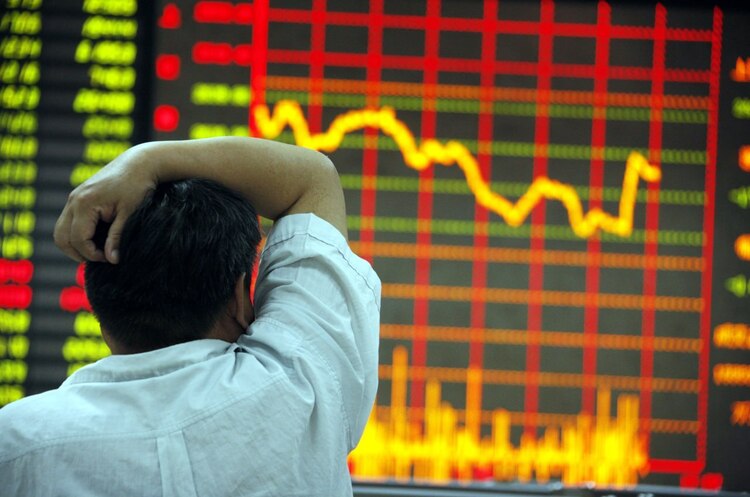'Chinese dominoes'. What is happening to the world's second-largest economy?
A bone is falling right now that might trigger an economic crisis in China

Zhongrong International Trust, one of China's largest trust funds, has failed to meet the payment schedule for almost all of its projects. In recent weeks, numerous clients have complained about payment delays. Country Garden, one of the largest companies in the real estate market, has also missed bond payments. Mind looked into the situation.
What has happened?
The trust fund is partially owned by Zhongzhi Enterprise Group, a Beijing-based conglomerate specialising in asset management, which holds stakes in various companies within the financial sector. The National Administration of Financial Regulation (which became China's banking regulator in May this year) has established a separate group to assess the conglomerate's risks, as it manages over 1 trillion yuan ($138 billion).
From the latest updates, it is known that Zhongrong has invited KPMG to conduct an audit.
Upon receiving the audit results, it is expected that Zhongrong will initiate the sale of its assets to repay its debt to investors. The future prospects of the trust fund are uncertain.
It's important to understand that the financial issues faced by the Zhongrong financial group stem from significant problems in the real estate market. The Zhongrong has always been heavily involved in development projects: in 2022, 11% of the $86.2 billion under management was allocated to investments in this sector.
So, what's happening in the real estate market?
The deterioration (some even use the term "crisis") in the Chinese real estate market began in 2020, and since then, the situation has been becoming increasingly turbulent, risking dragging down adjacent industries as well. Specifically, in July, property prices in new developments in the country experienced their first decline of the year – yet another gloomy piece of news amid already sad data about China's economy.
According to official information, prices for new constructions decreased by 2.4%, and in the secondary market, they dropped by 6%.
However, real estate agencies and brokers are reporting different figures. Particularly, in the secondary market, the decline reaches as much as 15% in leading cities like Shanghai and Shenzhen. Prices have fallen even further in smaller cities.
For instance, in Guangzhou, where the headquarters of Alibaba Group Holdings is located, flat prices have lost 25% of their value.
Government response
Such a discrepancy in figures is causing potential investors to become anxious. Government initiatives to cease the publication of a range of economic indicators are also distressing depositors. The regulator, in particular, has decided to no longer disclose data about youth unemployment levels: the latest statistic was at 21.3% (one in five young people cannot find work).
Financial experts not only lack the ability to make investment decisions but also speculate about whether the government itself comprehends the situation. And if the answer is affirmative, what the next steps of the regulator will be?
Economic issues could lead to social unrest. Incidents have already occurred. However, they are isolated for now. Several dozen depositors demanding to be paid were already spotted near the Zhongrong office. The following day, there were no longer eager individuals seeking payments near the building, but there was an increase in police presence.
Overall, the Chinese authorities aren't shifting from their principles. Several investors have recounted that representatives from law enforcement agencies 'requested' them not to engage in public protests. The geographic scope of these visits encompasses the entire country: from the capital Beijing to the southwestern Sichuan province and the coastal cities of Jiangsu and Shandong.
What other bad news is there?
Last week, Country Garden, one of the largest real estate companies, missed bond payments. It has 30 days left to make a $22.5 million payment. If Country Garden fails to meet this obligation, it could trigger a wave of bankruptcies not only in the real estate market but also in many related sectors. The Chinese economy might simply not be able to withstand this. It is still grappling with trying to digest the default of the developer Evergrande, which was declared at the end of 2021.
However, this is not the only bad news. Lately, they are emerging daily.
Reports indicate that regulatory bodies are compelling state-owned banks to increase interventions in the currency market administratively, to prevent a decline in the yuan's value. Additionally, the regulator is considering the possibility of relaxing the requirements for currency reserves within the banking system to prevent rapid currency depreciation.
These steps were initiated when the yuan fell to 7.35 to the dollar.
It's worth acknowledging that the government isn't ignoring the situation: unexpectedly, this week, interest rates were lowered and the amount of state investments in the financial system was increased.
Despite all these measures, the yuan has dropped to its lowest level since 2007, and the key stock index on the Hong Kong Stock Exchange is nearing a bear market.
In general, analysts note that there is a sense of gloom in the market.
If you have read this article to the end, we hope that means it was useful for you.
We work to ensure that our journalistic and analytical work is of high quality, and we strive to perform it as competently as possible. This also requires financial independence. Support us for only UAH 196 per month.
Become a Mind subscriber for just USD 5 per month and support the development of independent business journalism!
You can unsubscribe at any time in your LIQPAY account or by sending us an email: [email protected]


